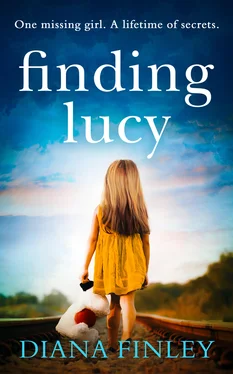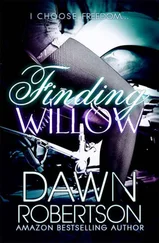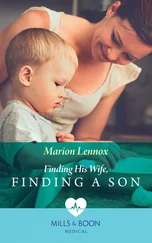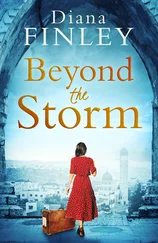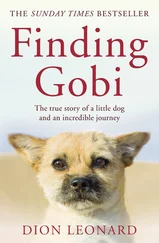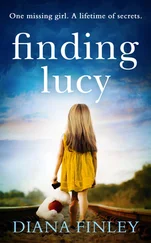Finally, the bus from Derby deposited me and I walked the last half-mile or so home in the dark. As so often happened, sleep did not come easily that night, although I was exhausted, both physically and mentally, from the day. I had had nothing to eat since breakfast, except an egg and cress sandwich hastily bought at Riddlesfield station, of which I could swallow only half. I knew I should eat something when I got home, but the very thought of food was repellent.
I lay back in a soothing hot bath and then fell into bed. My mind spun and my whole being was as tense as a spring with excitement. If it had been possible, I would have returned to that street, that house, the very next day, indeed that very minute. I would have scooped the beautiful child up in my arms and run off with her.
But impulsiveness was not in my nature. I knew it was an impulse that, like so many urges, had to be resisted – and a good thing too. It was vital to concentrate on the longer term. By focusing solely on my immediate longing, the whole future could be jeopardised. Self-control was everything. The final stages were approaching, and that made it all the more important to adhere absolutely to the plan.
* * *
The last day in Nottingham came soon enough. I stood in the chill of the empty house, and spent some minutes listening to the echo of the many years gone by. I checked each room one last time. Here, where we sat comfortably by the fire, Mother with embroidery or knitting on her lap, me with a book, or my stamp album (how I loved those colourful stamps, especially the ones sent by Mother’s friend Maureen from New Zealand, with their bird pictures).
Here, too, where we shared the evening meal together, the table always perfectly laid – not for us a plate on our laps in front of the television. Here my bedroom to which I had loved to retreat during difficult times as a child, for peace and solitude. And here was Mother’s room with its pink carpet and white built-in cupboard. The delicate smell of Mother lingered still, hung softly in the air, like a gentle ghost.
Now was the time for leaving. I locked the front door and went next door to say goodbye to Sylvia Blythe, our elderly neighbour, and leave the key with her for the agents to pick up. I took her two large carrier bags full of the non-perishable remnants from the kitchen cupboards: tins of soup, dried fruit, pots of jam and the like.
‘So kind of you, dear, just like your mother, aren’t you? I can’t believe you won’t be here any more. Not you, nor poor Dorothy.’ Sylvia’s voice broke with a sob. ‘After all these years – oh Alison, I shall miss you terribly.’
‘I’m sure the new neighbours will be nice.’
‘Maybe, but that’s just what they’ll be: new. Dorothy and I were friends for nearly fifty years – fifty years, Alison!’
Tears wound a crooked path down Sylvia’s wrinkled cheek. I held my breath, bent over her armchair and hugged her. I couldn’t help recoiling slightly at the feel of the soft, loose flesh of her face and its powdery smell. Sylvia recalled memories of her friendship with Mother: anecdotes I had heard many times.
When at last I was able to say my final goodbyes and extricate myself, I left by Sylvia’s back door and returned through the side gate to the garden. It was still only half past eleven. I fetched the pushchair and bags from their hiding place in the shed, put on my navy coat and brown wig, checked that no one was about, and departed through the back gate. I left the house I’d lived in for all of my forty-one years without a backwards glance.
There was nothing to guarantee I would be able to take the child that day, or the next, or the one after that, although I hoped, of course. What was vital was that I travelled to Riddlesfield from Nottingham, and never from Newcastle. That connection must never be made.
If the opportunity to take Lucy did not arise that day, I had planned to stay the night in a bed and breakfast in Brayling, an ancient village in a quiet rural area just outside Riddlesfield, and to return again by taxi the following day, and the day after that if necessary.
In the event, there was no need to stay overnight. My plan went miraculously smoothly. The journey seemed much simpler this time, having experienced it all before. It was late afternoon as I pushed the pushchair – empty but for a large carrier bag – from the station and through the streets. The sky was already darkening, which was greatly to the advantage of my disguise. I was concerned, however, that even the most neglectful parents, as the child’s appeared to be, would surely not allow such a tiny girl to play alone outside in the dark – and I might have missed my chance.
I needn’t have worried. As I approached the now familiar street, I recognised the small figure on the pavement near the yard as before, playing with some sticks. She wore the same yellow dress, this time with a boy’s green jersey over it, clearly a hand-me-down, as it was far too big for her, the sleeves turned up in lumpy rolls.
No one was about. I walked rapidly straight towards her, fishing in my bag for a lollipop. Her parents must have been inside. I could hear raucous shouting, shrieking and coarse laughter coming from the house. They sounded drunk. The little girl stood up, holding a bundle of twigs and sticks. She looked at me as I approached. I crouched to her level.
‘Hello, dear,’ I said quietly. The child stuck a dirty finger in her mouth and smiled. I held the lolly in front of her and she reached for it.
‘Do you like trains? Would you like to go for a ride – on a train?’ I said, holding the lolly just out of reach.
‘Tain,’ the little girl said, her eyes on the lolly.
I gave the lollipop to her and she immediately stuck it into her mouth. I pulled a pink anorak out of my bag and pushed the child’s little arms into it. She looked at it admiringly and did not resist. I put the hood up and tucked the fine, fair hair in.
‘It’s cold,’ I explained, ‘let’s go and see the train.’
‘See tain,’ the little girl replied.
I looked carefully all around us. No one; no sign of her parents, or anyone else. Just howls of laughter, screeching and braying from inside the house. They appeared to be completely unaware of their child, of Lucy. I picked her up and sat her in the pushchair, quickly fastening the straps, as I had practised. I set off at a fast walk. Lucy sat in the pushchair completely relaxed, sucking her lolly, looking about her with interest. I talked constantly, frantically, as if a gap of silence might somehow cause the child to beg to turn around and go home, to cry for her mother. I gabbled about a car, a tree, a dog, a blue door – anything we passed by, anything to engage her interest.
‘Look, Lucy – a black dog! What a big dog! Oh, there’s a bus.’
Lucy looked in the direction of whatever I remarked on in this way. There was nothing wrong with her comprehension. I might have known my Lucy was no fool.
As we approached Churchill Square I said, ‘Let’s go in a shop now, shall we?’
‘Sop,’ Lucy agreed.
We went into British Home Stores, down the escalator to the lower ground floor, and straight to the toilets. No one inside. Good. I lifted her out. I paused for a moment and held Lucy tenderly to me, breathing her in. It was as if I breathed Lucy into my very heart, which beat hectically. I felt something for this child – whom I’d only just met – that I had never felt before. The feeling was so strong and so unfamiliar that for a moment I was afraid.
Читать дальше
